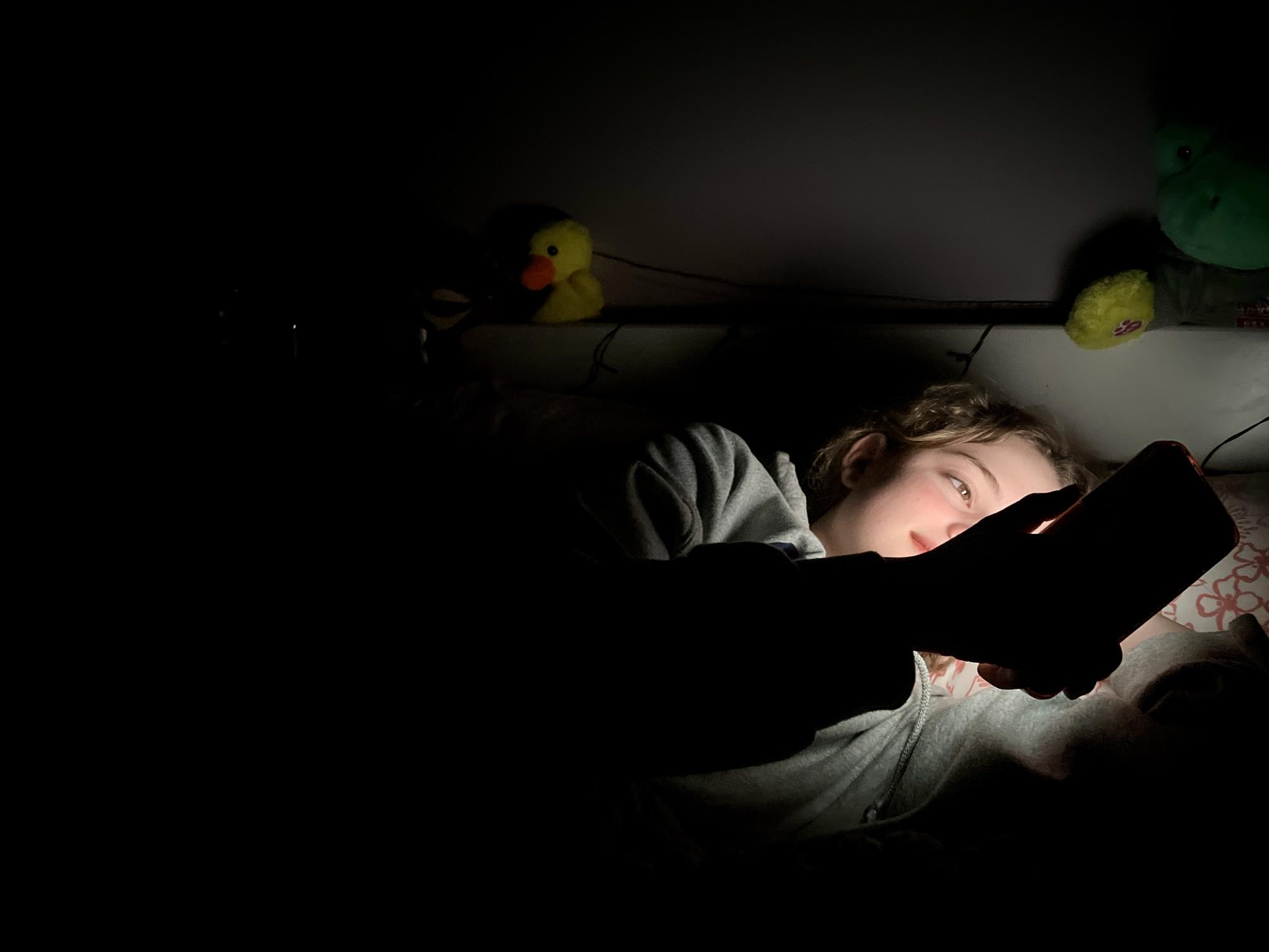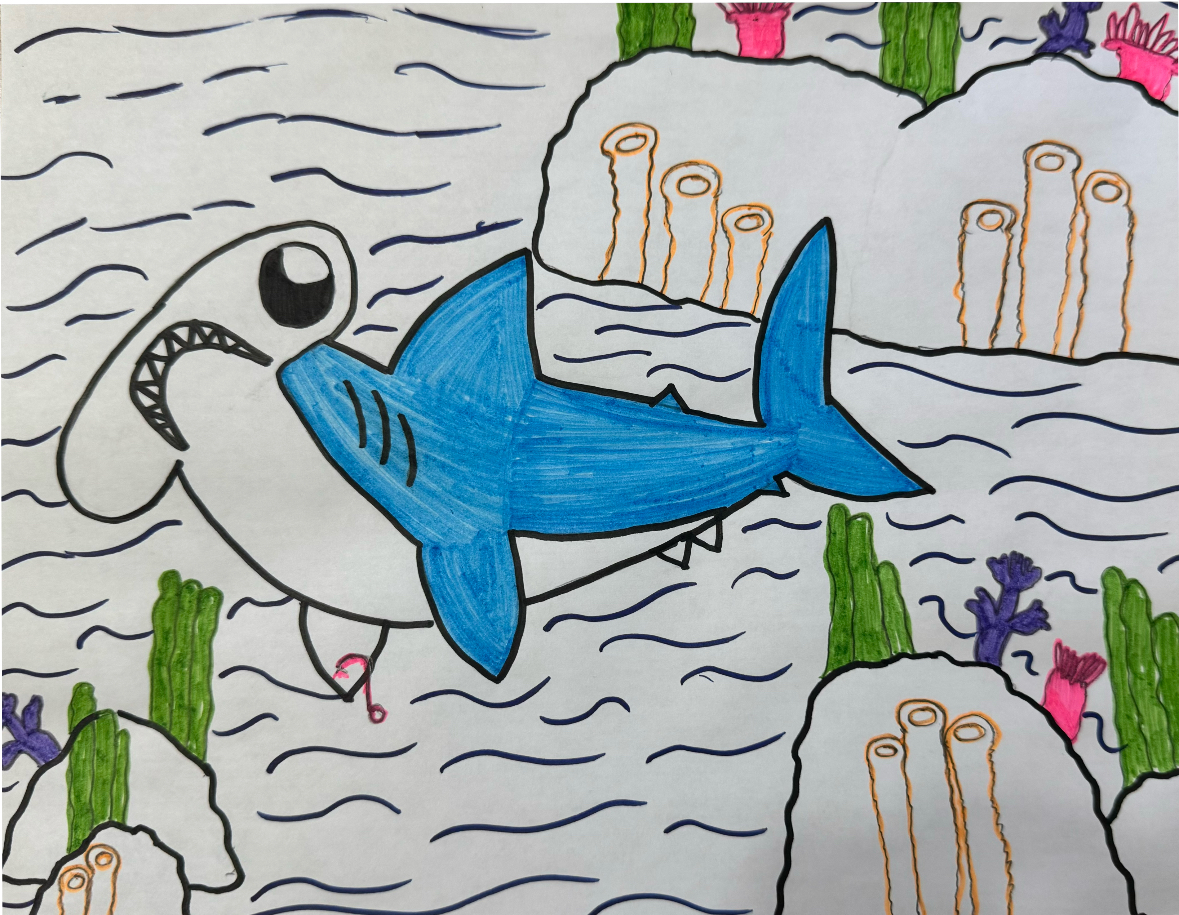In the quiet hours of the night, countless students engage in a mental battle between a need for sleep and recreational time, impacting their sleep cycle and, in turn, their mental and physical health. As screens illuminate stressed faces, staying up late may become an attempt to reclaim lost time during the day resulting in exhaustion the following morning. This phenomenon, known as revenge bedtime procrastination (RBP), represents a struggle individuals frequently wrestle with without realizing it.
RBP defines the act of staying up late at night to buy back time from the previously busy day. Binge-watching shows, scrolling through social media or reading exemplifies a sample of activities that contribute to the delay of sleep. Individuals who partake in pastimes such as these create free time for themselves at night in response to little to no leisure time in the work day. RBP lives up to its name as the phenomenon means to prolong one’s bedtime in revenge for a busy day. While this practice may act as an escape from one’s demanding routine, RBP ultimately becomes a short-term fix with long-term drawbacks.

“[When I stay up at night,] I read books and do art. Staying up late on occasion helps me feel more motivated because I have time to myself the night before for personal things, but it usually just makes me tired the next day and have little motivation to do anything at all. I think it makes my grades go down because my brain is sleepy and I don’t remember anything,” junior Cammie Cogbill said.
According to the National Institutes of Health (NIH), teenagers require eight to 10 hours of sleep per night, while adults require seven to nine hours. Stealing hours out of one’s designated sleeping time in exchange for recreational activities results in sleep deprivation, brain fog and tiredness in the days following. Thus, a vicious cycle establishes itself: staying up late for free time, experiencing exhaustion the next day, decreased productivity, working forcefully and longer to compensate for weakened efficiency — ending the day with little free time.
Beyond fatigue, RBP causes an abundance of negative consequences. A lack of sleep links to physical and mental health issues, impaired cognitive abilities and proneness to accidents, all of which play roles in school, work, relationships and quality of life. Additionally, a person’s safety also suffers due to sleep deprivation. In 2022, 693 U.S. citizens died as a result of driving while drowsy. Severe sleep deprivation may cause a similar reaction to drunkenness in the brain, proving that proper rest remains essential to a person’s health.
“Someone could be very stressed during the day due to lots of activities and have quiet time around bedtime to just do something that’s not stressful long term it’s not good to not be sleeping enough. People who have shorter sleep on a chronic basis, not for a night or two or for a week or two, have higher rates of all kinds of medical problems. [Effects] may depend on the overall health of the person, but eventually, it does seem to catch up with you,” Emory Healthcare clinician Donald Bliwise said.
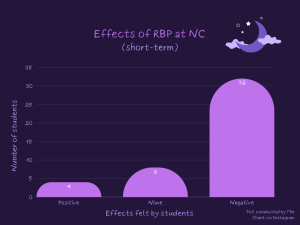
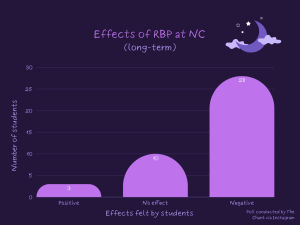
Screens, especially bedroom televisions and portable devices, commonly lead to temptations inducing RBP. Blue light exposure up to four hours before sleep reduces melatonin levels at night, causing sleep cycle disruptions. Internal clock disruption becomes especially harmful at night when a person’s mind otherwise naturally signals to sleep. While spending increased time on screens at night, blue light exposure delays bedtime and promotes sleep deprivation. Additionally, blue light wavelengths cause higher body temperatures and increased heart rates, triggering subcortical and limbic areas of the brain dealing with alertness to malfunction.
RBP exists beyond the constraints of electronics, however, RBP ultimately remains a phenomenon defined by a person’s active choice to remain awake at night. Technology may induce temptations, such as doom-scrolling, or trigger a mind’s alertness — stress and lack of free time primarily drive the decision to stay up. Hustle culture widely causes this mental strain, pressuring individuals to turn to screens, books, art or other recreational activities at night.
“I find that stressful times at work give me nighttime anxiety, leading to trouble falling asleep. [The lack of sleep] causes brain fog and leads to increased stress, making the cycle worse. As both a teacher and mom, kids tend to be more moody and irritable without a full night’s sleep. Winding down before bed is important, but schools could also teach stress relieving techniques or ways to better manage time to relieve the work-life balance,” Kennesaw Methodist Children’s Academy director Jessica Falcone said.
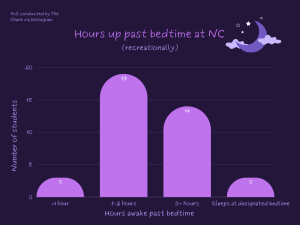
Although RBP can remain manageable, addressing the problem’s roots combats the problem efficiently, tackling issues such as stress, overcommitment, burnout and digital distractions. Such strategies include soothing techniques for bedtime, time management and learning to balance free time and work. By targeting the issues causing RBP, affected individuals may sleep longer and deeper hours at night, improving social, logical and cognitive functions.
Peaceful exercises at night shut down anxieties preventing sleep by activating a relaxation response in the brain. This helps the mind fall asleep without outside influences such as melatonin supplements, herbal remedies or sleep aids. Breathing exercises and visualization, for example, encourage calmness and relaxation in the mind.
To achieve this relaxation, techniques such as diaphragmatic breathing promote 100% lung capacity, lowering blood pressure and heart rates by expanding the entire diaphragm with air. Four-seven-eight breathing, inhaling through the nose for four counts, holding the breath for seven counts and exhaling through the mouth for eight counts creates a repetitive, calming sensation within one’s mind and body that keeps stress at bay. Similarly, box breathing slows a person’s breath pace to trigger mind relaxation. To practice this, one must breathe in for four seconds, hold the breath for four seconds, breathe out for four seconds, wait four seconds and repeat. Each of these breathing exercises aims to increase blood supply to the brain, triggering a chemical response resulting in a calm state, prepping the mind for sleep and halting anxiety and restlessness that prevents the want to rest.
Additionally, visualization techniques create a sense of calmness in an individual’s body and mind by conjuring mental imagery. Body scans draw awareness towards certain areas of their body, beginning on the top of their head and traveling down to their toes. This practices mindfulness, lulling participants to improve sleep quality. Another technique involves imagining peaceful settings, sometimes with the help of guided imagery videos, in which participants use their senses to remain mindful of their surroundings and visualize a calm environment. Similarly to body scans, mental imagery practices purposeful awareness and exercises the five senses to trick minds into feeling relaxed, promoting sleep. Pausing personal recuperation especially helps combat RBP, as bits of free time allow minds to rest and reduce nocturnal urges to stay up late in compensation for lost recreational time.
Ultimately, a calm body and mind allow a person to relax enough to fall asleep. While breathing exercises and visualization promote calmness, learning to handle stress in daily life may directly address RBP. Skills such as time management and establishing a work-life balance help cope with stress by creating manageable workloads and allowing a person to take breaks when needed.
RBP remains a common issue marked by a struggle to balance personal time and responsibilities. Though late-night leisure may provide a person temporary relief from stress and time to oneself, the cost to mental, physical and emotional well-being must be acknowledged. By addressing the root causes, including stress, overcommitment and poor time management and taking advantage of relaxation techniques, individuals may reclaim their nights to sleep rather than protest their stress. Prioritizing sleep remains an act of self-care, necessary for individuals to face each day with adequate energy, clarity and strength.


